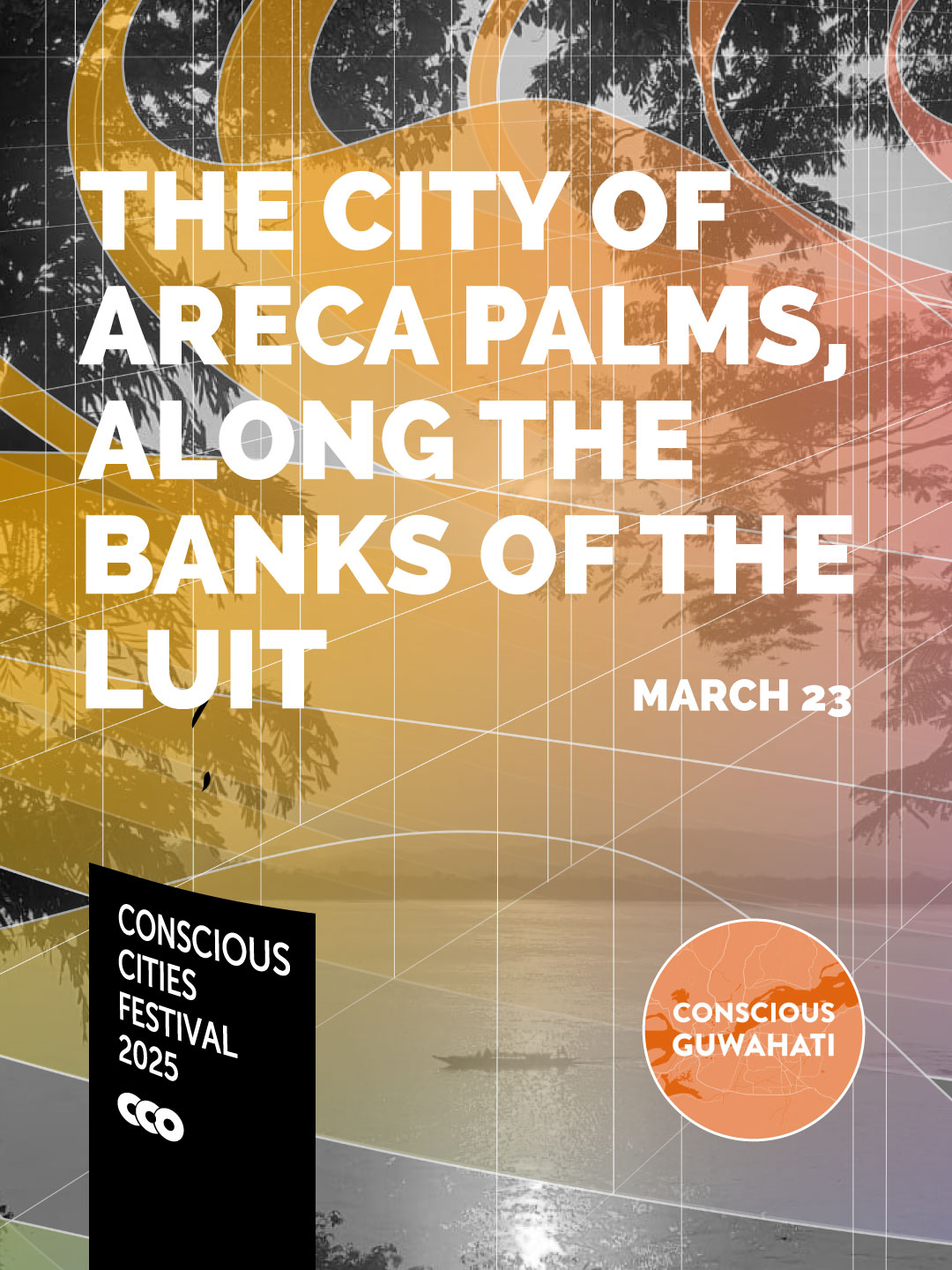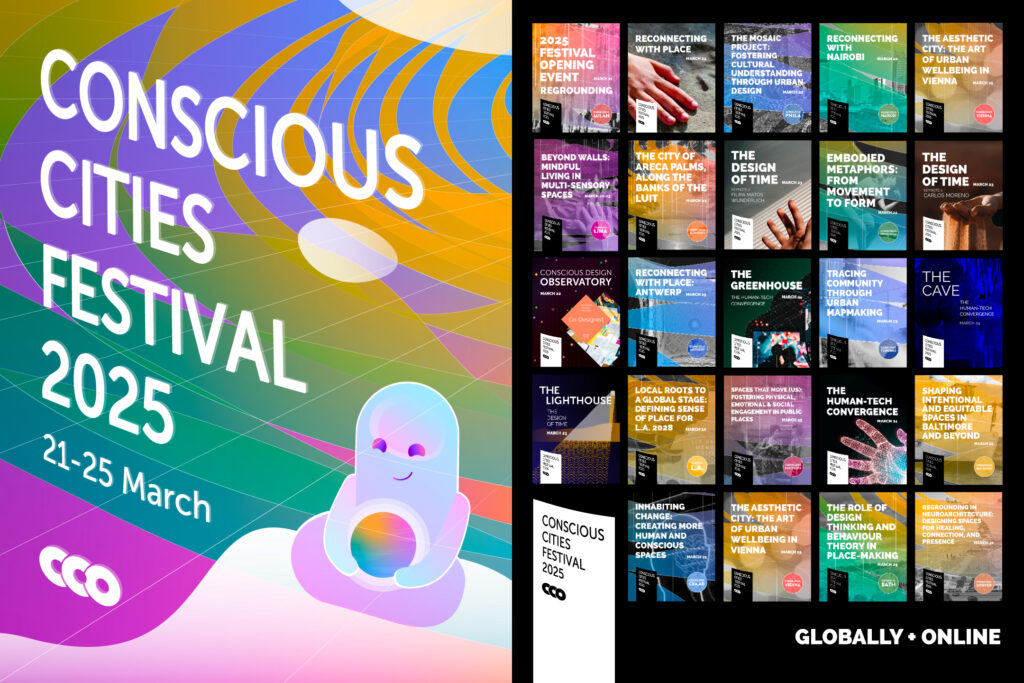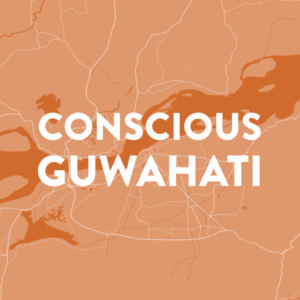Guwahati derives its name from two Assamese words: “Guwa“, meaning areca nut, and “haat“, meaning market. Historically, the city has thrived as a prominent trade hub for areca nuts along the River Brahmaputra. The river, locally known as “Luit“, shapes the city’s geography, drives its economy, nurtures its cultures and embodies an identity for its community. It is a lifeline for the region and connects communities across Northeast India.
Much like the flow of the Luit- unpredictable, fast, fierce, yet nurturing, Guwahati, as a city, is also developing rapidly and unpredictably. Yet, it has potential for opportunities to be explored that can encourage its people to slow down and connect deeply with it. If time is an urban construct that can take away the creative agency for people to be themselves, how might designing places for agency and meaningful connections look like? What questions can we ask for people to reclaim their sense of agency of time in a rapidly urbanising and developing metropolis? What can the movement from time scarcity to an abundance of creative agency and meaningful connections be in the language of urban design? What comes after a shared sense of agency and attachment to the city one lives in?
Conscious Guwahati, embraces the theme of “Regrounding” of the upcoming Conscious Cities Festival in March 2025 and aims to explore and expand on how a fast-paced city can intentionally slow down and foster deeper relationships between people and their surroundings. In this Conscious Cities Festival, the event, “The City of Areca Palms, along the banks of Luit“, will have a panel discussion on two themes- “Reconnection with Place” and “Design of Time“. This discussion will be led by experts in Design, Urban Cities, Urban Planning, Media and Art to collectively delve into innovative ways to design spaces that promote mindful living and a sense of agency. The panel discussion will be followed by a Q & A session and an experiential mapping activity with all the participants and experts. Conscious Guwahati’s call for photograph submissions with descriptions of the two themes is now open to the citys’ residents. This call is a part of “The Urban Tapestry” project, which invites entries, that will be displayed through social media, in the time leading up to the Festival.
Conscious Guwahati roots its intentions, on fostering a dialogue that will support residents to reclaim their agency and belongingness in a rapidly developing city. Aligned with Sustainable Development, Goal 3 (Health and Well-Being) and Goal 11 (Sustainable Cities and Communities), the event shall emphasize on conscious creation of environments that enhance well-being and support sustainable growth. The event hopes for a thoughtful approach to reconnecting with places and time for a healthier, more resilient future.














